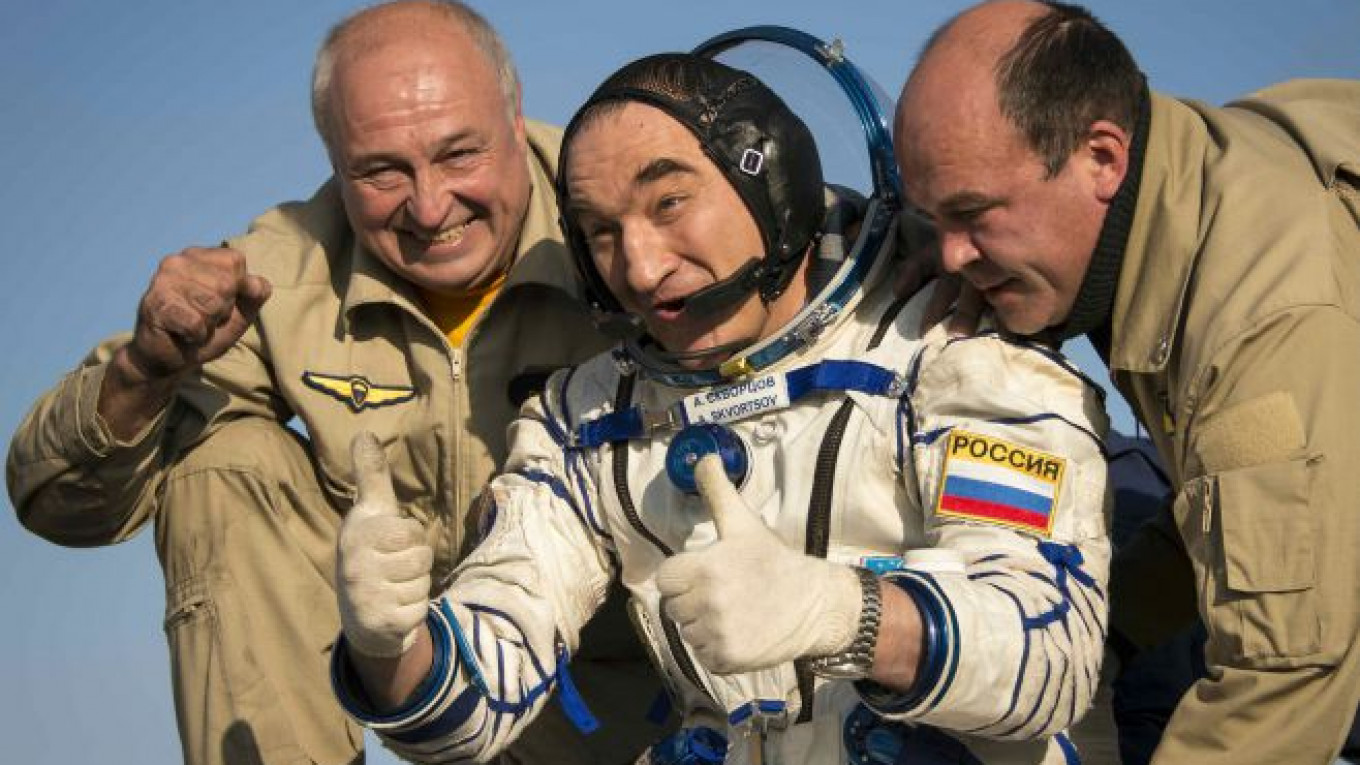CAPE CANAVERAL, Fla. — Two Russian cosmonauts and a NASA astronaut returned to Earth on Wednesday, capping a nearly six-month stay aboard the International Space Station.
Riding inside a Russian Soyuz capsule, former station commander Steve Swanson and cosmonauts Alexander Skvortsov and Oleg Artemyev landed southeast of Dzhezkazgan, Kazakhstan, at 8:23 a.m. Thursday.
"A pinpoint touchdown," said NASA mission commentator Rob Navias.
The men rode home in the same Soyuz capsule that carried them to the station in March. They departed at 7:01 p.m. EDT (2301 GMT) as the station soared 418 kilometers over eastern Mongolia.
"We accomplished a lot. We've had a lot of fun," Swanson said during a change-of-command ceremony on Tuesday that was broadcast on NASA Television.
In addition to a pair of Russian space walks, the returning crew tackled a record number of science experiments, upgraded the station's prototype humanoid robot and repaired broken equipment.
"We did a lot of maintenance, which is good and bad," Swanson said. "I love doing maintenance, but it means things broke."
New station commander Max Suraev remains aboard the orbital outpost along with NASA astronaut Reid Wiseman and the European Space Agency's Alexander Gerst.
Three new crew members, including the first Russian woman to serve on the station, are due to launch on Sept. 25.
"Getting three new faces up here will be lots of fun," Wiseman said in an inflight interview.
The newcomers are NASA astronaut Barry Wilmore and cosmonauts Alexander Samokutyaev and Elena Serova. Serova will become only the fourth Russian woman to fly in space and the first to serve on the International Space Station, a $100 billion research complex owned by 15 nations.
The last Russian woman to fly in space was Yelena Kondakova, who was part of a NASA space shuttle crew in May 1997.
A Message from The Moscow Times:
Dear readers,
We are facing unprecedented challenges. Russia's Prosecutor General's Office has designated The Moscow Times as an "undesirable" organization, criminalizing our work and putting our staff at risk of prosecution. This follows our earlier unjust labeling as a "foreign agent."
These actions are direct attempts to silence independent journalism in Russia. The authorities claim our work "discredits the decisions of the Russian leadership." We see things differently: we strive to provide accurate, unbiased reporting on Russia.
We, the journalists of The Moscow Times, refuse to be silenced. But to continue our work, we need your help.
Your support, no matter how small, makes a world of difference. If you can, please support us monthly starting from just $2. It's quick to set up, and every contribution makes a significant impact.
By supporting The Moscow Times, you're defending open, independent journalism in the face of repression. Thank you for standing with us.
Remind me later.






